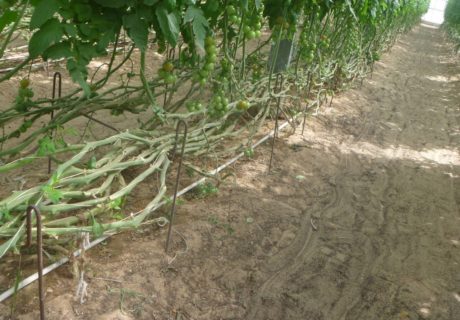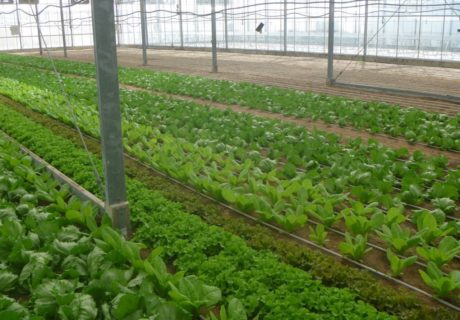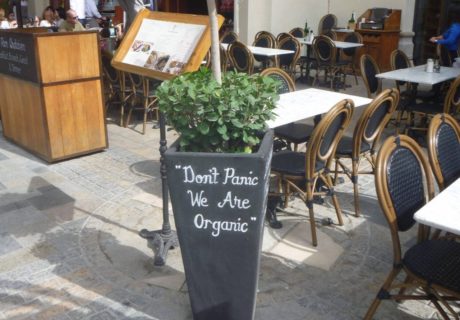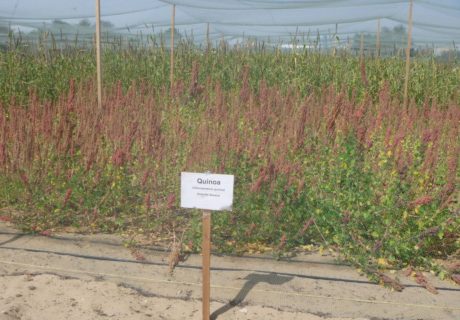A former desert might seem an unlikely place for organic farming to be flourishing but at a farm in the pro-organic, anti-GM United Arab Emirates that’s exactly what’s happening. Michael Wale reports
While the UK’s organic sales are rising the amount of organically farmed land decreases. But British holidaymakers in the Emirates, especially the highly popular Dubai, visited by a million Brits a year, have found that organic is booming.
The Ministry of Environment and Water is planning to increase acreage under organic farming by 5% annually as part of the strategic plan for 2014-2016. The Ministry’s consistent efforts have led to a marked increase in the organic farming area from a mere 200 hectares to 4,286 hectares in the last three years.
Fatima Al Kabini, acting director of health and agricultural development said that the Ministry had put in place the legal framework as to help meet the new targets , and has encouraged farmers to use organic fertilisers , seeds, pesticides, and other materials.
One of the new organic farms is owned by Al Rawafed, and is situated on former desert land 20 kilometres from Abu Dhabi. It was taken over from a previous organic grower and enlarged to 60 acres. The farm brought in an organic grower from Germany for a few days a month to guide its growing programme for a year, which general manager Walid Hijazi describes as ‘educational’.
The use, or more to the point, limited use of water dominates growing in the Emirates
Oxford educated Dr Rachael McDonnell, is a water and policy scientist, based for the past seven years at the International Centre for Biosaline Agriculture – which uses the strapline ‘Agriculture for Tomorrow’. McDonnell is also a visiting professor at her old university in Oxford.
It was obvious from the Centre’s work with compost, including the making of biochar, and measuring the intake, through electrical sensors, of water from cereals like barley, and proving that asparagus – and the foodies’ new favourite food quinoa – can grow in salt water, that organic growing was important here too.
Dr McDonnell told me, revealingly, that : “GM is banned here. You cannot even research on it. We live in a fragile environment here”. This standpoint reflects the resolute views of the late Sheikh Zayed, who was, from its formation until his death in 2004, President of the UAE. The Sheikh believed strongly in the conservation of the natural environment and wildlife. His beliefs held great sway, and the greenness of Abu Dhabi city reflects this. There is an annual UAE environmental award bearing his name.
“GM is banned here. You cannot even research on it. We live in a fragile environment here”
Walid Hijazi reminded me that the temperature in the summer was normally 50 degrees or higher, and that the water table was 30 centimetres, adding, “irrigation control is something people don’t understand. People think more is better. Not so”.
On the organic farm, revolutionary water cooling methods are already being used in the 17 huge tunnels that house most of the growing – even the bananas that were brought from Costa Rica, and are small and sweet like those grown in Cyprus. I was shown around by Michael ten Duis, brought in from Holland to take charge of marketing and business development.
As we moved into the salad production tunnel, protected by double security doors, so that no pests can get in, Mten Duis drew my attention to the marked coolness inside, despite it being a warm day outside. This was due to the innovative wooden wall running the whole of one side of the tunnel. This enabled water cooling to take place by allowing a high pressure water supply to run over the wall in tiny rivulets. The water is re-used over and over.
The plants themselves are watered incredibly sparingly from controlled rubber pipes between the lines of tomatoes, whose roots, unusually, are also spread along the ground, rather than deeper down.
There are row after row of differing varieties of tomatoes climbing upwards and massed with fruit. Next along the seemingly never ending tunnel were differing types of lettuce varieties, from hearted to red leaved. There were neat rows of aubergines, flourishing chives too – and every herb the market could wish for.
In fact, all in all, there are 43 different sorts of crops grown here, including potatoes, and even cauliflowers, although the plan is to cut down on the number of crops and varieties, once market demands have been established.
Some crops – maize is one, along with a number of herbs – will tolerate being grown out of doors.
Hijazi emphasises that the farm is the only one in the Emirates that holds EU organic certification: “We were awarded it in December officials had come here from Europe to inspect us. It’s a huge benefit to our farm and shows we are doing it in a proper way.”
The farm’s organic produce reaches a large market in a weekly food fair in one of Dubai’s largest parks every Friday. A huge, very long, stall sells entirely organic vegetables, and by lunchtime had sold out. Meanwhile, in another smaller site ever Friday, the weekly holiday, there is an entirely organic food market. And large restaurants like the chain Le Pain Quotidien, which has several branches in Dubai and specialises in organic ingredients, boldly proclaim the benefits of organic on boards that changed daily on the pavement outside..
The farm is planning to begin marketing its own produce in the coming year. Currently, the farm name doesn’t appear on any of their produce on sale, something they plan to change.
Hijazi explained: “At present we have to sell through traders. But in future we are planning to sell direct to hotels, restaurants and markets. Everything is sold locally in Abu Dhabi and Dubai”.















